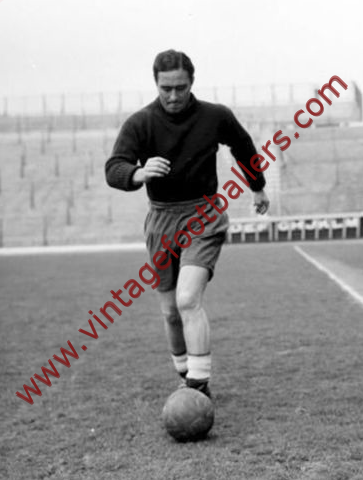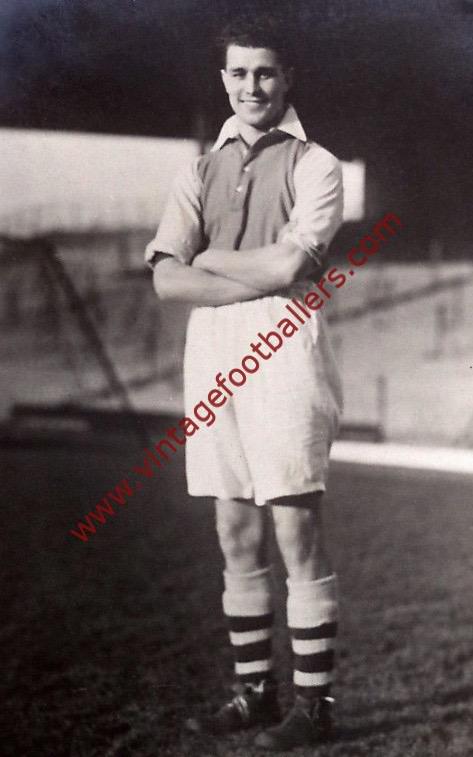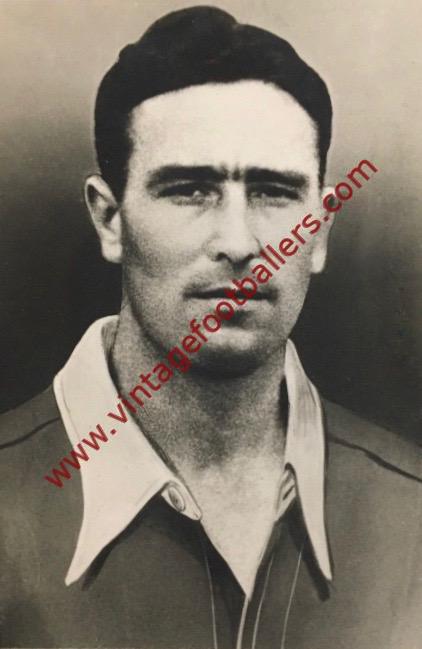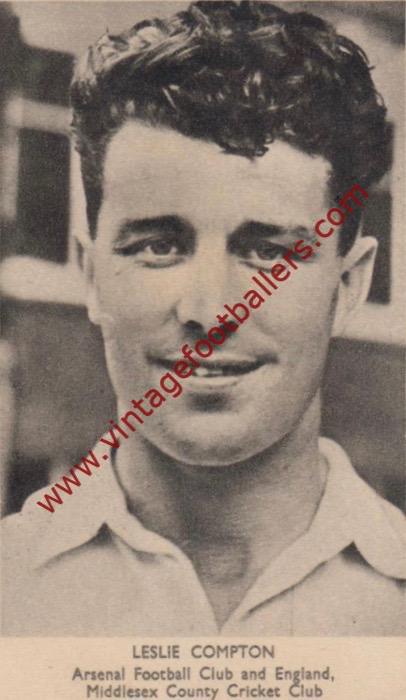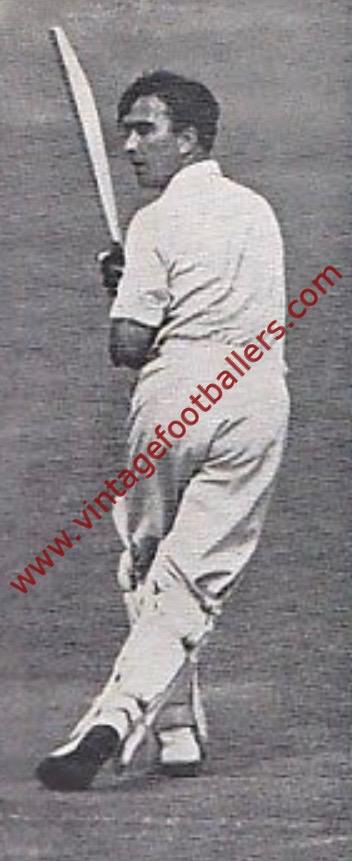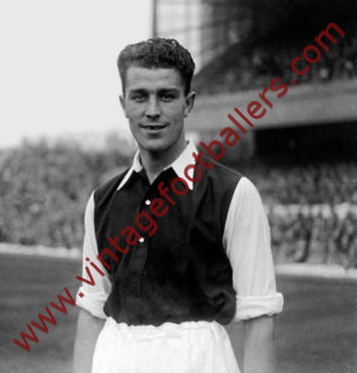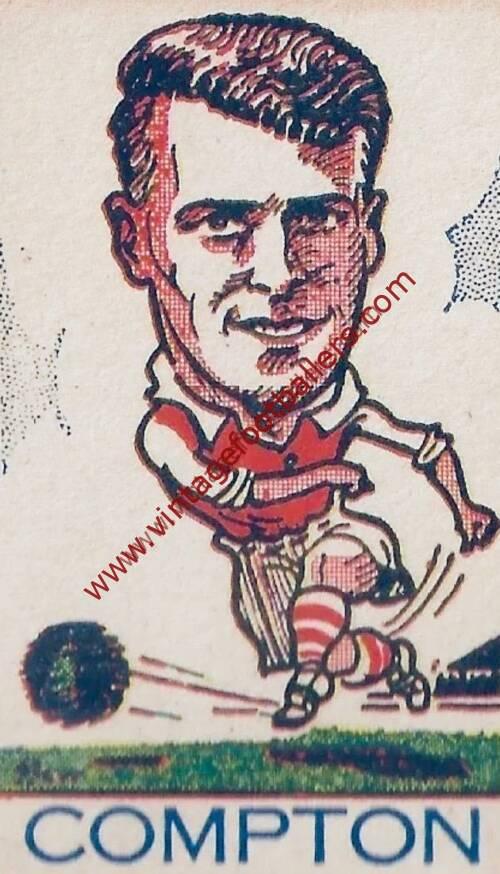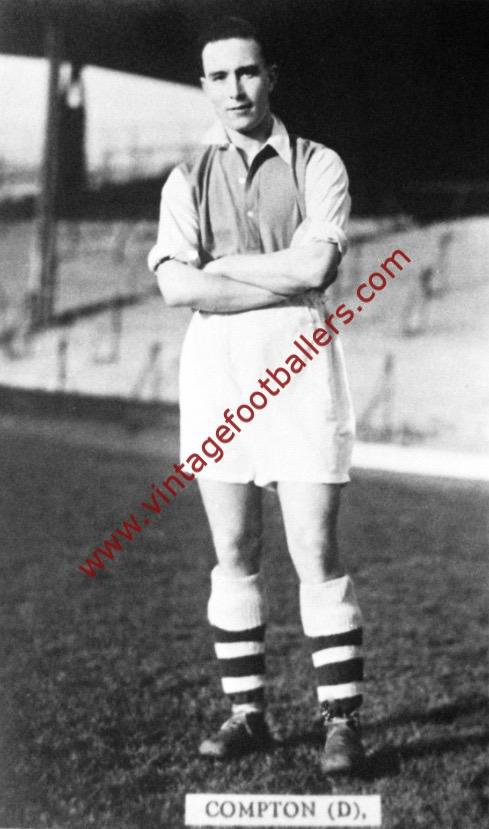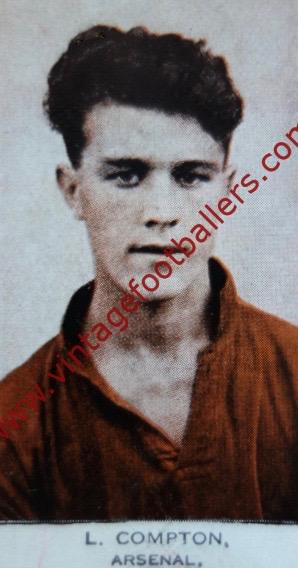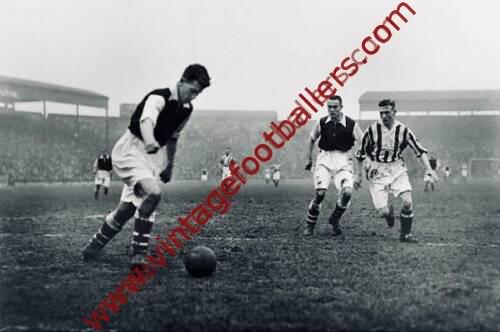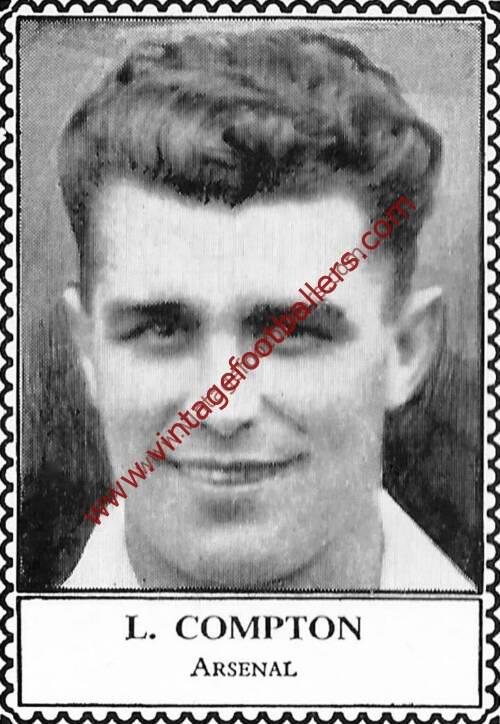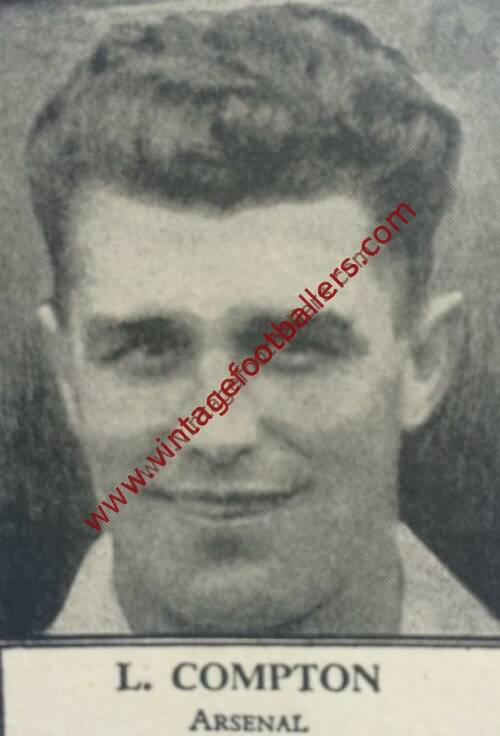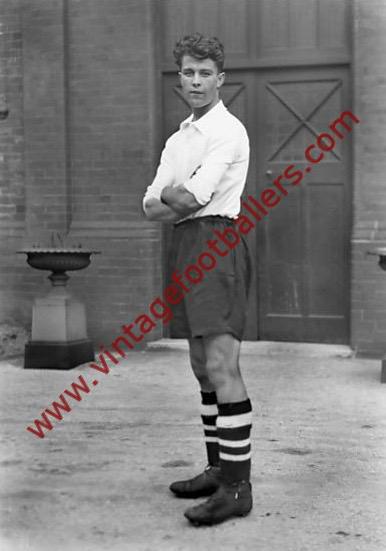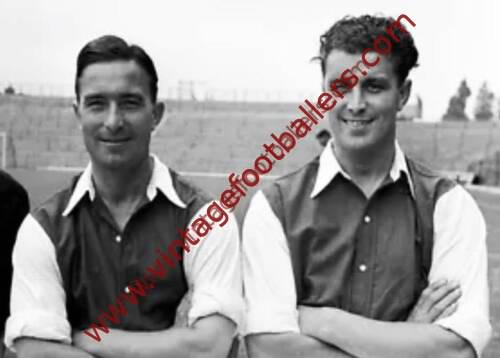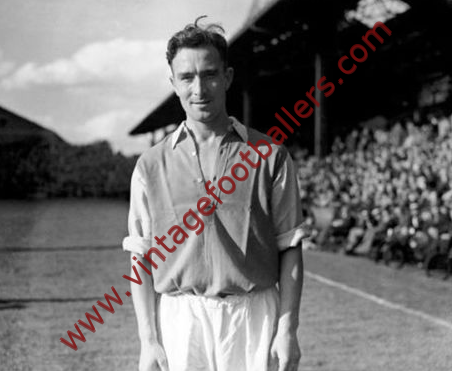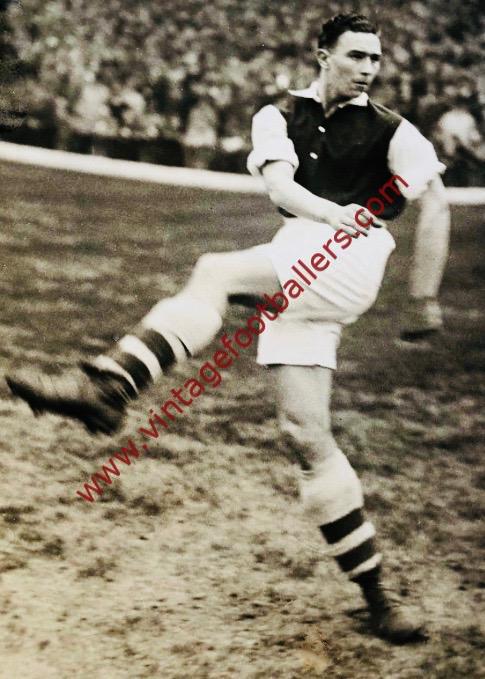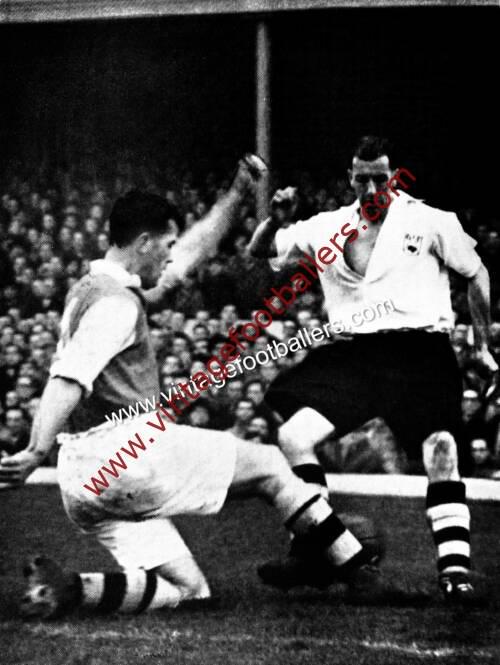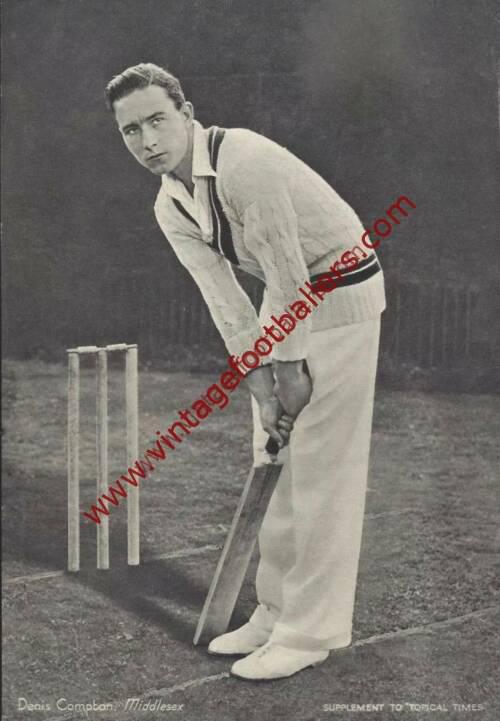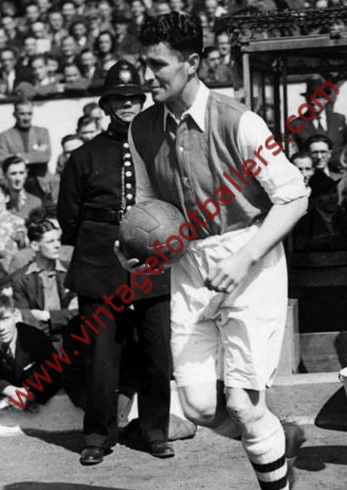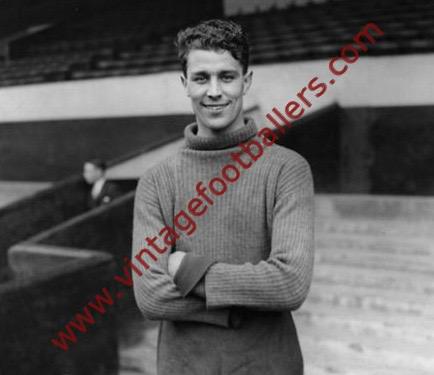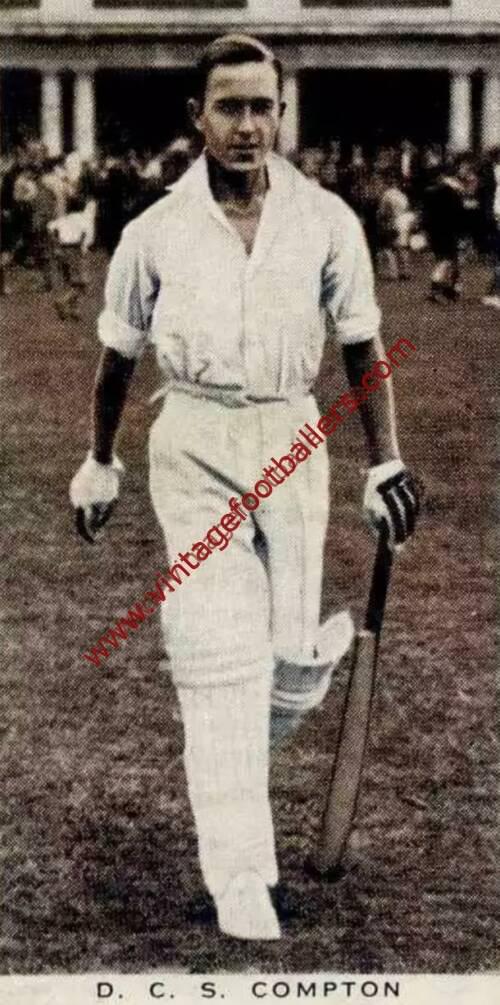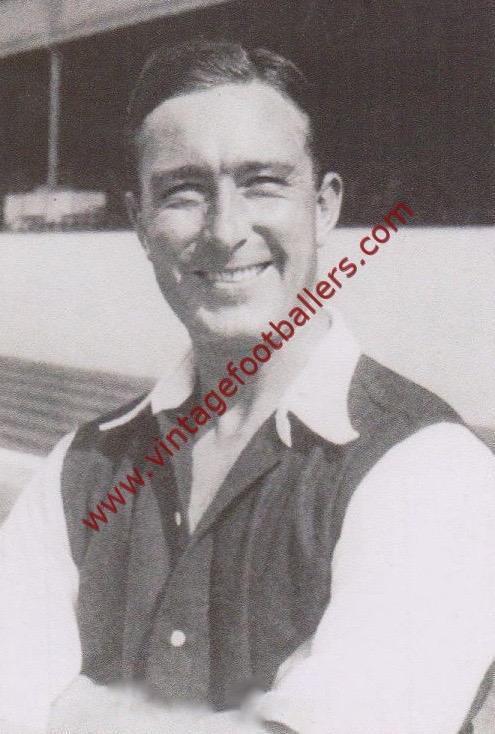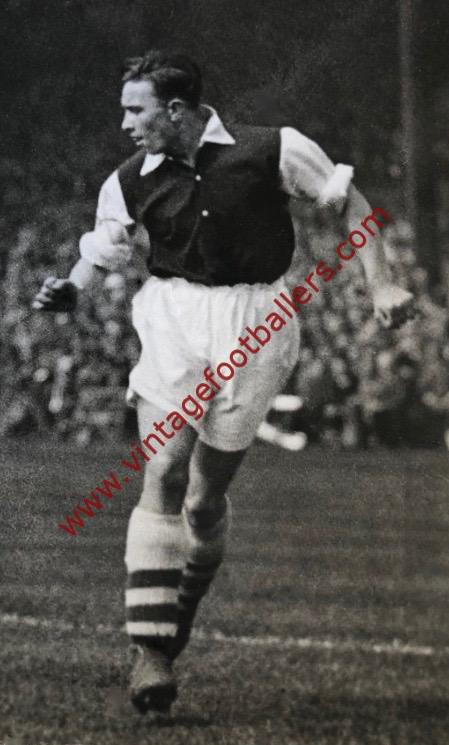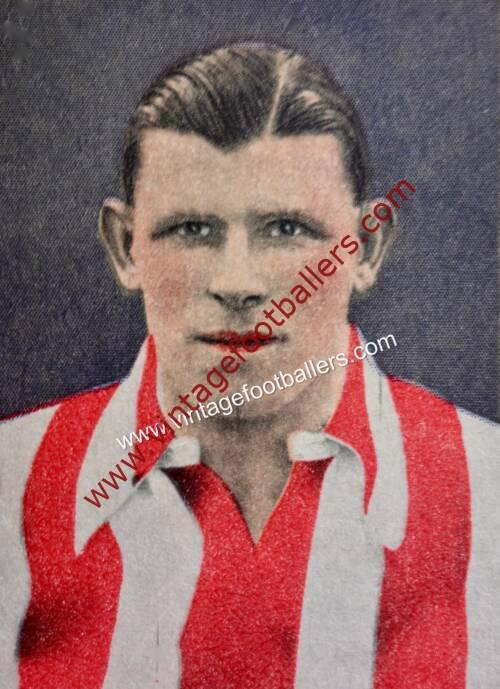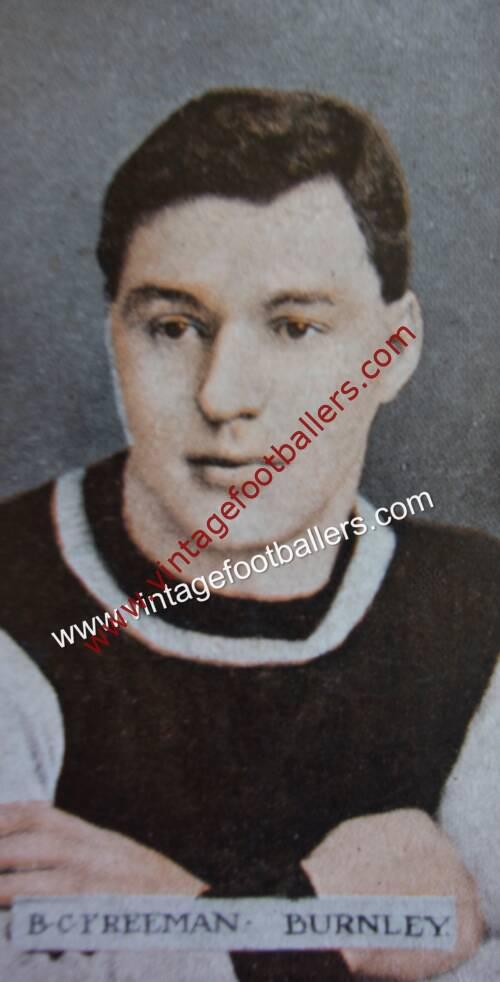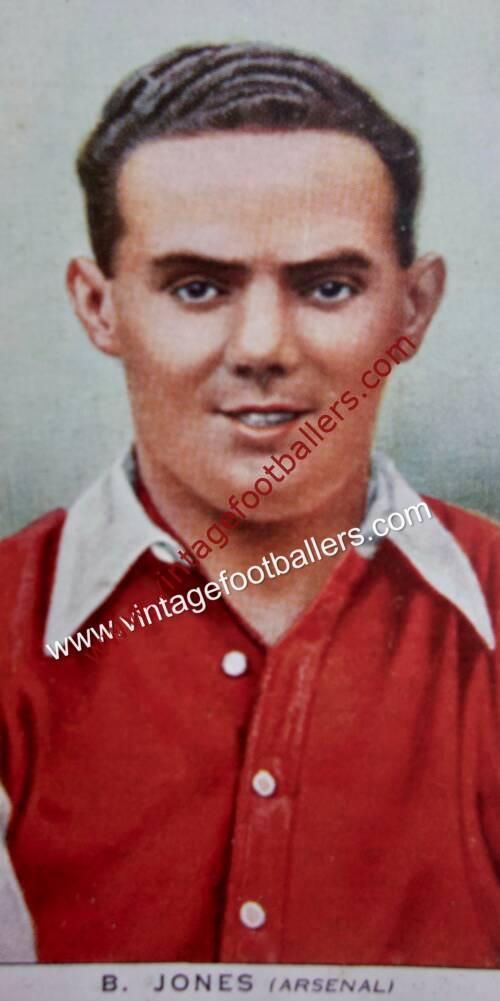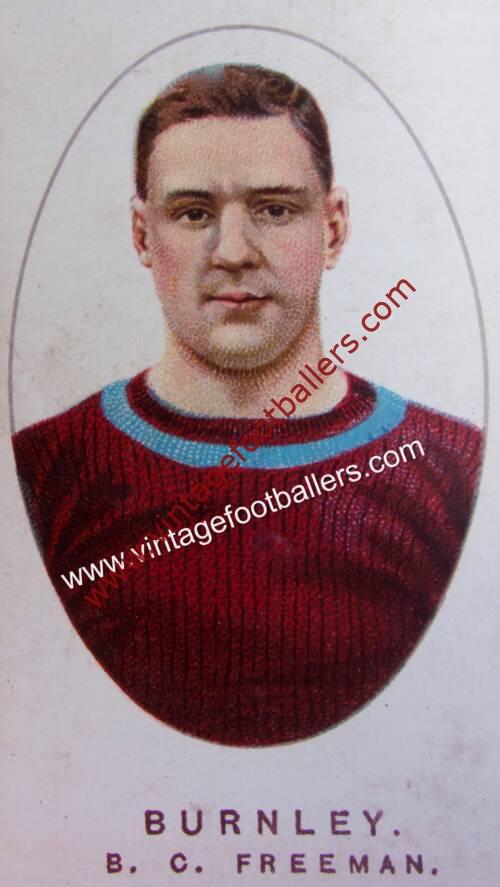Please choose your photo size from the drop down menu below.
If you wish your photo to be framed please select Yes.
Note: 16″x 20″not available in a frame.
Images can also be added to accessories. To order please follow these links
£8.95 – £49.95
Please choose your photo size from the drop down menu below.
If you wish your photo to be framed please select Yes.
Note: 16″x 20″not available in a frame.
Images can also be added to accessories. To order please follow these links
Hendon, Middlesex born Denis Compton was an excellent footballer, whose best years were lost to the Second World War. As a footballer, playing outside left, Compton started his career with Golders Green in 1933, playing for Nunhead in 1934. He had joined Arsenal as a 14-year-old amateur in 1932 and became a regular on the wing in the junior sides, turning professional with The Gunners in May 1935 before making his Football League debut against Derby County in December 1936, scoring in a 2-2 draw. He played 7 games in Arsenal’s League Championship of 1938 and won a League Championship medal after the Second World War scoring 6 goals in 14 appearances in their title winning season of 1947-48. He also won the FA Cup with Arsenal in 1950 as they beat Liverpool 2-0 at Wembley, playing in five of Arsenal’s cup ties in the run. He played his last Gunners match in May 1950 against Portsmouth, and retired from playing football in the 1950 close season; in total he played 60 matches and scored 16 goals.
Denis Compton is one of the true greats of English cricket. He played cricket for Middlesex as right-handed batsman and slow left-arm chinaman bowler, Compton is regularly credited as one of England’s most remarkable batsmen and he is a legendary figure in the game. He is one of only twenty-five players to have scored over one hundred centuries in first-class cricket. Compton finished his cricket career after playing 78 Test matches with 17 centuries at an average of 50.06. In all first class cricket he scored 123 centuries. Together with his older brother Les, he won the 1947 County Championship title with Middlesex, making them the only brothers ever to have won the national title both in football and cricket. Unlike Denis though, Leslie never played Test cricket for England.
Having made his debut for Middlesex in 1936, Compton earned his first England cap against New Zealand in 1937. At 19 years and 83 days, he remains the third youngest England debutant ever. He scored his first Test century aged just 20 years and 19 days in 1938 against Don Bradman’s touring Australians, making 102 at Trent Bridge in 1938. Compton was one of England’s finest batsmen, and remained at the top of his profession for some twenty years. His dashing approach to batting and the sheer enjoyment he exuded endeared him to a generation of cricket lovers.
As with many other sportsmen of his generation he lost some of his best years to the Second World War, during which he served with the British Army in India. He was posted at Mhow, Central India. He was granted permission to play for the Holkar team in the Ranji Trophy, India’s national cricket tournament. It was in India that he began his close friendship with his Australian counterpart as Test cricketer, footballer and national hero, Keith Miller. They played against each other in the match at Calcutta between the Australian Services team and East Zone.
The match was interrupted by rioting when Compton was on 94 and one of the rioters who had invaded the pitch ran up to Compton and said “Mr Compton, you very good player, but the match must stop now.” This was a phrase which Miller gleefully recalled whenever Compton went out to bat against the Australians. In recognition of their friendship and rivalry, the ECB and Cricket Australia decided in 2005 that the player adjudged the Player of the Series in The Ashes would be awarded the Compton-Miller medal.
After the War Compton produced a season of cricket that established him as a British household name, and one of the greatest cricketers of his era. Helped by a rare summer of sunshine, Compton thrilled the war-weary English public with his cavalier batting. Against the touring South Africans, Compton scored five centuries, one for Middlesex and four for England, accumulating 1,056 runs at an average of 88. His aggregate in all matches that season was 3,816 runs, which remains the most ever made in a season in first class matches. In that season, he scored 18 centuries, with the last one scored on 15th September 1947. Eighteen hundreds in a single season is another world record to his name.
Against Bradman’s Invincibles in 1948, Compton was England’s standout performer in a losing cause. In the First Test at Trent Bridge he scored 184 in the second innings after Australia had established a first innings lead of 344, and it looked as though he might save the match for England until he lost his balance to a short-pitched ball from Miller and hit his wicket. In the Third Test at Old Trafford, Compton scored an unbeaten 145 in the first innings, when no other batsman made more than 37. He had scored only four runs when, while facing a bumper barrage from Ray Lindwall, he edged the ball onto his forehead. Compton was forced off the ground with a cut head, given two stitches, and ordered to rest despite wanting to return to the crease. He eventually came back out when England was teetering at 119 for 5 and enabled the team to reach 363. This was the only match that England did not lose, and if so much time had not been lost to the weather they might have won it. In the series he made 562 runs at 62.44, against fierce fast bowling from Lindwall, Miller and Bill Johnston.
On the Marylebone Cricket Club (M.C.C.) tour of South Africa 1948-49 he scored 300 against North-Eastern Transvaal in just a minute over three hours, still the fastest triple-century ever in first-class cricket. His first hundred took 66 minutes (he said, “I was getting a sight of the bowling”), his second 78 minutes (he was not out overnight and had to play himself in again next morning), and his third hundred took just 37 minutes. Reminiscing about the match later, Compton compared the South Africans’ bowling with a decent county side, but criticised their catching (he had been dropped before he reached 20).
He toured Australia for the 1950-51 Ashes series as vice-captain, the first professional in the 20th century to be awarded the position, but had a dismal tour because of a recurring knee problem caused by an old football injury. He averaged only 7.57 in the Tests, but 92.11 in his other first class matches. He became the first professional to captain the M.C.C. for an entire game, Jack Hobbs having taken over from the injured Arthur Carr in 1924-25. He and Len Hutton made the winning runs in the Fifth Test at Melbourne, the first time Australia had been beaten since 1938.
Compton also jointly captained Middlesex between 1951 and 1952, with Bill Edrich. Also in 1952, Compton scored his 100th first-class century against Northampton while featuring for Middlesex at.Lords. On the 1954-55 tour his departure was delayed for a remedial operation on his knee and he joined the team in Australia by aeroplane. In the First Test at Brisbane he badly cut his hand when he hit a billboard while fielding and batted at the bottom of the order. He missed the Second Test. He came third in the England Test averages (38.20), but topped the tour averages (57.07) and made three centuries. In his last Test against Australia in 1956 he made a dazzling 94 despite having just had his right kneecap removed.
In home Test series against Pakistan in 1954 he set the record for scoring the most runs in between lunch and tea in a Test match (173) in an innings of 278 at Trent Bridge. Compton finished his cricket career in 1958 after playing 78 Test matches with 17 centuries at an average of 50.06. In all first-class cricket he scored 123 centuries and averaged 51.85 having scored 38,942 runs. He also took 622 first class wickets with his bowling, with a best of 7-38, of which 25 were in Test matches, his best Test bowling performance being 5-70.
In 2009, Compton was posthumously inducted into the ICC Cricket Hall of Fame. The Denis Compton Oval and a stand at Lord’s Cricket Ground are both named in his honour.
After retiring from sport, Denis Compton became a journalist and later a commentator for BBC Television. He was made a CBE in 1958. He became the first former professional cricketer to be elected President of Middlesex County Cricket Club in 1991, serving two terms.
His older brother Leslie was also a footballer for Arsenal and an England international, who played cricket for Middlesex at a somewhat less stellar level, playing as a wicket-keeper. Compton’s grandson Nick played for Middlesex and Somerset, making his Test debut against India at Ahmedabad during the England’s 2012-13 tour of India and playing 16 Test matches for England.
NB in the photograph Compton prepares to cross the ball in a match at Highbury in April 1949.
| Weight | N/A |
|---|
